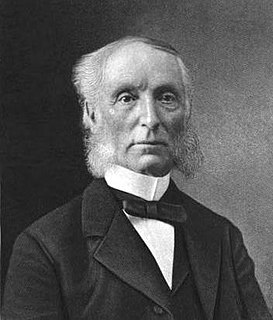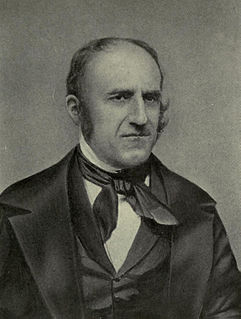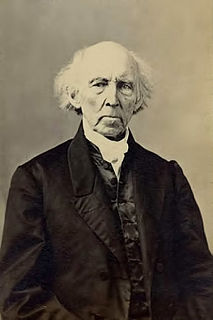
Utrecht University is a university in Utrecht, the Netherlands. Established 26 March 1636, it is one of the oldest universities in the Netherlands. In 2016, it had an enrolment of 29,425 students, and employed 5,568 faculty and staff. In 2011, 485 PhD degrees were awarded and 7,773 scientific articles were published. The 2013 budget of the university was €765 million.

William Whewell was an English polymath, scientist, Anglican priest, philosopher, theologian, and historian of science. He was Master of Trinity College, Cambridge. In his time as a student there, he achieved distinction in both poetry and mathematics.

The Pontifical Gregorian University is a higher education ecclesiastical school located in Rome, Italy. It was originally a part of the Roman College founded in 1551 by Ignatius of Loyola, and included all grades of schooling. The university division of philosophy and theology of the Roman College was given Papal approval in 1556, making it the first university founded by the Society of Jesus (Jesuits). In 1584 the Roman College was given a grandiose new home by Pope Gregory XIII, after whom it was renamed. It was already making its mark not only in sacred but also in natural science.

The East India Company College, or East India College, was an educational establishment situated at Hailey, Hertfordshire, nineteen miles north of London, founded in 1806 to train "writers" (administrators) for the Honourable East India Company (HEIC). It provided general and vocational education for young gentlemen of sixteen to eighteen years old, who were nominated by the Company's directors to writerships in its overseas civil service. It closed in 1858.

Ian MacDougall Hacking is a Canadian philosopher specializing in the philosophy of science. Throughout his career, he has won numerous awards, such as the Killam Prize for the Humanities and the Balzan Prize, and been a member of many prestigious groups, including the Order of Canada, the Royal Society of Canada and the British Academy.
Bewick Bridge was an English vicar and mathematical author.
Samuel Webber was an American clergyman, mathematician, academic, and president of Harvard University from 1806 until his death in 1810.

Amos Eaton was an American botanist, geologist, and educator who is considered the founder of the modern scientific prospectus in education, which was a radical departure from the American liberal arts tradition of classics, religious classes, lecture, and recitation. Eaton co-founded the Rensselaer School in 1824 with Stephen van Rensselaer III "in the application of science to the common purposes of life". His books in the eighteenth century were among the first published for which a systematic treatment of the United States was attempted, and in a language that all could read. His teaching laboratory for botany in the 1820s was the first of its kind in the country. Eaton's popular lectures and writings inspired numerous thinkers, in particular women, whom he encouraged to attend his public talks on experimental philosophy. Emma Willard would found the Troy Female Seminary, and Mary Mason Lyon, the Mount Holyoke Female Seminary. Eaton held the rank of senior professor at Rensselaer until his death in 1842.

Jeremiah Day was an American academic, a Congregational minister and President of Yale College (1817–1846).

John Bascom was an American professor, college president and writer.

James Curley was an Irish-American astronomer.
The University of Palermo is a university located in Palermo, Italy, and founded in 1806. It is organized in 12 Faculties.

The University of Helmstedt, was a university in Helmstedt in the Duchy of Brunswick-Wolfenbüttel that existed from 1576 until 1810.

Mark Hopkins was an American educator and Congregationalist theologian, president of Williams College from 1836 to 1872. An epigram — widely attributed to President James A. Garfield, a student of Hopkins — defined an ideal college as "Mark Hopkins on one end of a log and a student on the other".
Encyclopaedia Biblica: A Critical Dictionary of the Literary, Political and Religion History, the Archeology, Geography and Natural History of the Bible (1899), edited by Thomas Kelly Cheyne and J. Sutherland Black, is a critical encyclopedia of the Bible. In theology and biblical studies, it is often referenced as Enc. Bib., or as Cheyne and Black.

Chester Dewey was an American botanist, antislavery activist, clergyman and educator.

Johann Sebastian von Drey was a German Catholic professor of theology at the University of Tübingen. With Johann Adam Möhler, Drey was the founder of the so-called Catholic School of Tübingen.

Rheinallt Nantlais Williams MBE was a Welsh professor of the philosophy of religion and principal of the Presbyterian United Theological College, Aberystwyth in Wales from 1979 to 1980.

Faculty of Science is one of the faculties of the University of Zagreb.
Hugh Williams (1843–1911) was a Welsh church historian and college tutor, known also as a Presbyterian minister.

















